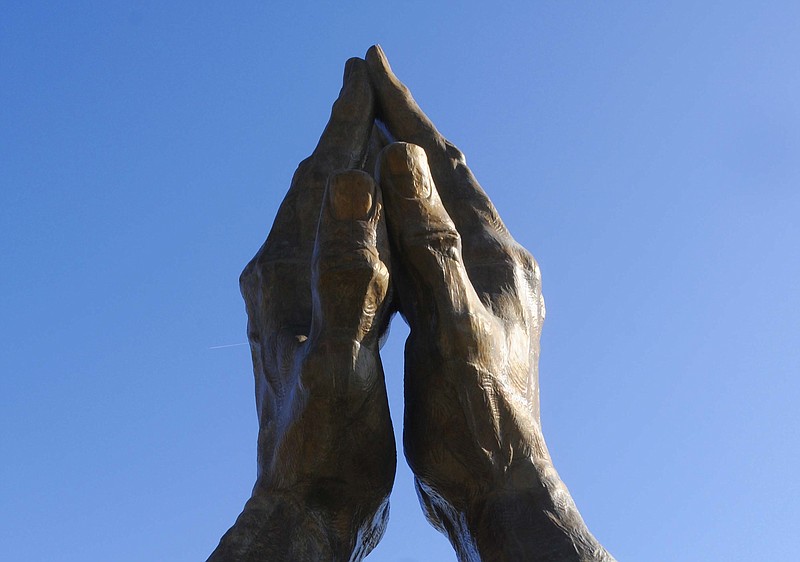In the past seven years, under the highly secular Obama administration, people of faith have remained strong.
That's what the results of a Pew Research Center survey released last week indicate and what several election decisions on traditional values affirm.
The survey indicates that 77 percent of U.S. adults who identified with a faith group in the Religious Landscape Study in 2014 have stayed as religiously engaged as they were the last time the survey was taken in 2007.
In addition, two-thirds of religiously affiliated adults said faith was very important to them and they prayed daily. And about six in 10 said they attend worship services at least once or twice a month, a rate similar to the previous study.
Tuesday's elections, meanwhile, saw voters in Houston turn back a Hillary Clinton-supported ballot initiative that proponents said would protect against discrimination in public places but which opponents said would open the door to men in women's bathrooms and vice versa.
Elsewhere, Ohio voters rejected a ballot measure that would have legalized marijuana, far left San Francisco voted out its sanctuary city-supporting sheriff, gun rights advocates in Coos County in liberal Oregon scored a win, and voters in Portland, Maine, said no to a $15 minimum wage.
Meanwhile, conservative Republican businessman Matt Bevin, a supporter of Rowan County clerk and gay marriage foe Kim Davis who was not expected to win his governor's race in Kentucky, not only won but won convincingly. And well-funded Virginia Democrats, in an effort to flip the state Senate to give Democratic Gov. Terry McAuliffe leverage on gun control laws, fell short when every Republican incumbent won.
While it's true in many measures that all politics is local, it's not a stretch to believe that some of the outcomes occurred because many American believe the Obama administration has not reflected their values in its pushing for looser drug laws, increased access to abortion, the legalization of gay marriage, an unchecked flow of illegal immigration and the promotion of all other faiths against Christianity.
Over the past seven years, the president also has signaled his assent or, at best, remained silent as religious liberties have been eroded. Private business owners have been jailed or fined for not being willing to violate their faith in their business practices. Military chaplains have been constrained from counseling with the precepts of their faith. And the president himself has had Christian symbols covered at locations where he spoke.
"We have the state establishing a new religion, a secular state religion, a secular orthodoxy that everybody is going to have to comply with," former Sen. Rick Santorum, a 2016 Republican presidential candidate, put it earlier this year. "We have now the secular church that is being imposed on this country and anybody that defects is subject to persecution and prosecution. That is a very serious threat to liberty in America."
Perhaps in response, the Pew survey indicates a higher percentage of respondents in 2014, as opposed to 2007, said they believe their faith should "preserve traditional beliefs and practices" in the face of changes in modern society.
They also said they regularly read scriptures, participated in small prayer or study groups, and shared their faith with others in slightly higher numbers than seven years ago.
If a more secular administration was, in fact, the intent, the idea has found favor in Obama's party. People with no religious ties, according to the Pew survey, are now the largest group of Democratic Party members and those who lean Democratic. That coalition comprised only 19 percent of the party in 2007 but rose dramatically to 28 percent in 2014.
However, the study also indicates the no-religious-ties group is less prone to be "absolutely certain" they are registered to vote, a full 9 percent below all groups that identify with a religion.
To make a prediction about the 2016 presidential election based on last week's results would be folly. What is more certain, though, is that Americans do take their faith and their values seriously, believe this administration has intentionally attempted to erode those tenets in the last seven years and are of a mind to elect a person as president who more reflects their faith and values.
